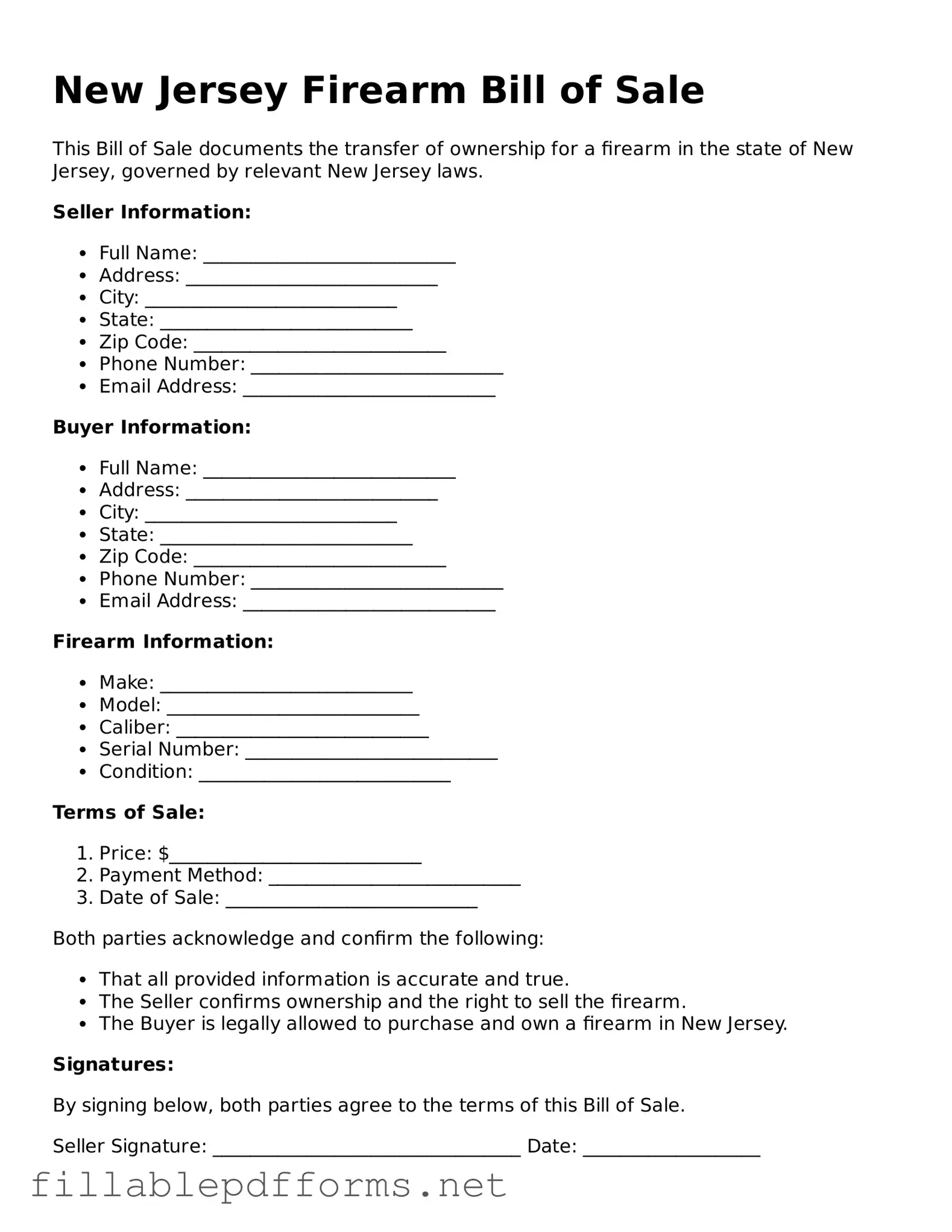Attorney-Verified Firearm Bill of Sale Form for New Jersey State
The New Jersey Firearm Bill of Sale form is an essential document that records the transfer of ownership of a firearm between a seller and a buyer in the state of New Jersey. This form ensures that both parties have a clear understanding of the transaction and helps maintain compliance with state laws. Understanding its importance can help facilitate a smooth and legal transfer of firearms.
Launch Editor Here

Attorney-Verified Firearm Bill of Sale Form for New Jersey State
Launch Editor Here

Launch Editor Here
or
▼ Firearm Bill of Sale PDF
Almost there — finish the form
Complete Firearm Bill of Sale online fast — no printing, no scanning.